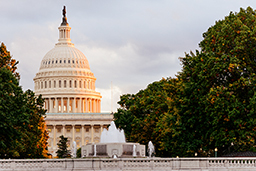This month, as COVID-19 infections, hospitalizations and death rates soar, and businesses large and small and out-of-work Americans continue to feel the weight of the ongoing pandemic, lawmakers on both sides of the political aisle have been working on a compromise coronavirus aid package worth somewhere in the neighborhood of $908 billion.
Certainly, a follow-up relief plan would be welcomed by those suffering through the worst economic crisis since the Great Depression. Unfortunately, in the wake of the CARES Act (including the Paycheck Protection Program), there has been no consensus on additional financial aid at the federal level. But now, it appears the impasse may be breaking as Congress faces increasing pressure to do something as the nation stares down a seasonal surge in COVID-19 cases and the resulting economic fallout.
Hope comes in the form of a handful of centrist senators and members of the bipartisan House Problem Solvers Caucus. Their proposed plan seeks to reach a middle ground between (1) a slimmed down package as proposed by Republicans, including a liability shield and additional help for businesses, and (2) individual unemployment benefits and a more robust offering for state and local governments as sought by Democrats. Though there is scant detail available to the public about the specifics of the relief package being negotiated, we do know the $908 billion as contemplated would (at least as of this writing) likely include:
- Weekly $300 federal unemployment benefits for out-of-work Americans, which would last approximately four months (an amount lower than the Democrat’s proposed $600/week);
- $160 billion in funding for state and local governments;
- A temporary moratorium on certain coronavirus-related lawsuits against companies and other entities; and
- Funding for small businesses, schools, health care, transit authorities and student loans, among other things.
Significantly, the proposal is NOT expected to contemplate a second round of $1,200 stimulus payments to individuals.
Congress hopes to pass coronavirus relief legislation as soon as possible, though even if passed, it is unclear whether the act would be signed into law by President Trump prior to the inauguration of President-elect Joe Biden. Of course, Michelman & Robinson, LLP will continue to monitor the pending legislation and provide further insight going forward.
This blog post is not offered, and should not be relied on, as legal advice. You should consult an attorney for advice in specific situations.

